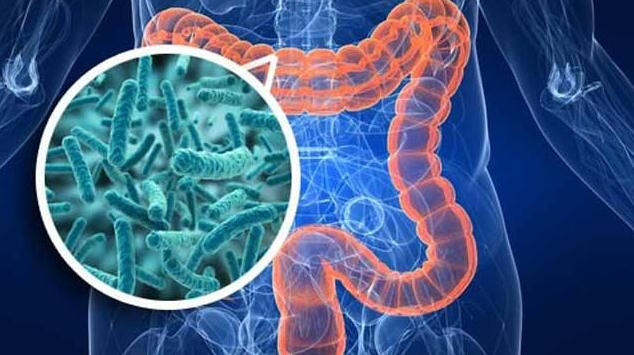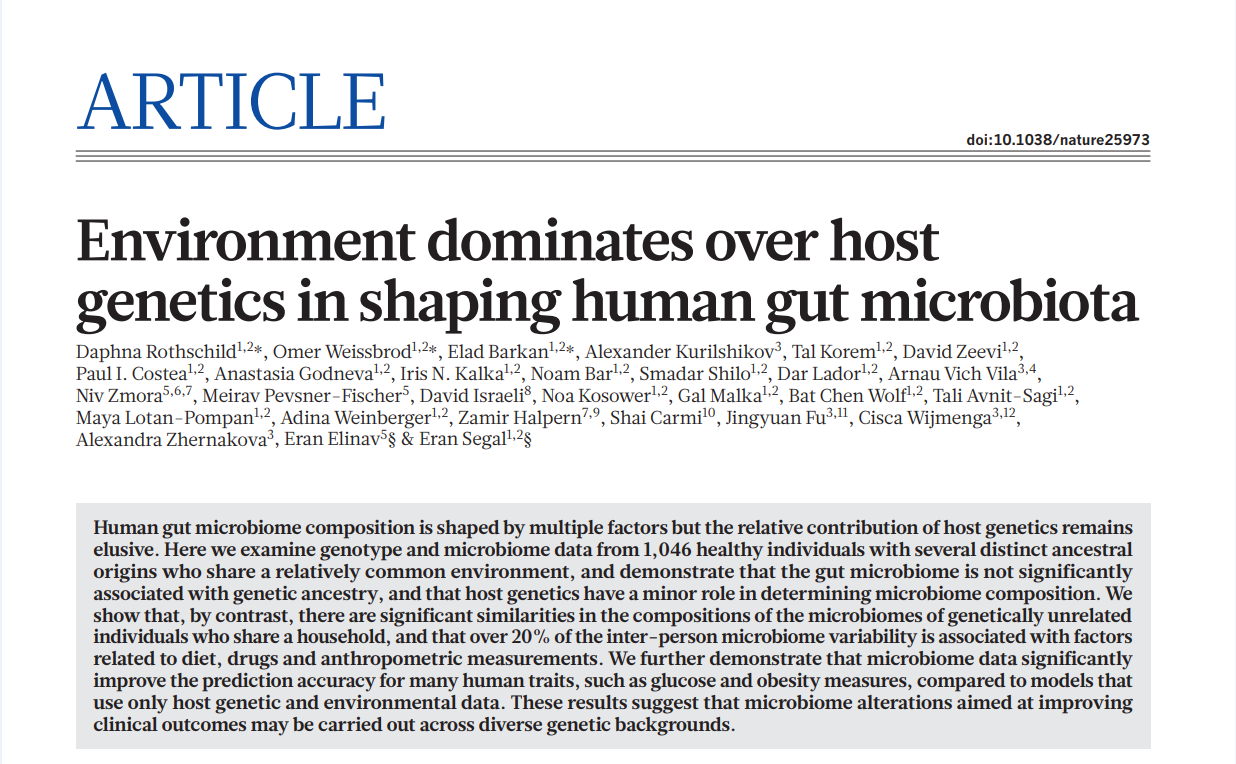A few days ago, an article published in the journal Science revealed that the estimated extent of gene life expectancy accounts for only 16%. This means that the impact of the environment on life expectancy is higher than our expectations. Now, Nature magazine has another heavyweight: the role of the environment in human intestinal microflora is also far greater than the gene!

Which of the genes or the environment has a greater impact on the composition of microorganisms? This has always been a debate topic in the scientific community. Studies in recent years have shown that microbes that are symbiotic in our bodies affect almost every aspect of human health. The differences in the microbiological structure among individuals have been confirmed to be associated with various disorders such as obesity and mood. Some scientists believe that this difference originates from our genes and is dominated by "innate."
However, now the answer from Eran Segal, a computer science expert from the Weizmann Institute of Science, is: Genetics plays a minor role in the microbial composition. On the contrary, the environment has a greater impact on its composition. At the same time, research shows that the relationship between gut flora and health is far more important than we think.

Nature(doi:10.1038/nature25973)
Gene: about 2%
The research team used a unique database that collected blood and faecal sample data from a sample of 1,046 adults in Israel (including Skennazie, North Africa, Yemenis, Sefardi, Middle East, etc.) (one about personalized nutrition Longitudinal study).
The reason why Israel was chosen was because the population here is very diverse (the time when Jews immigrated to Israel is shorter) and they now have a common living environment. “We need to distinguish between genetic and environmental impacts on microbes. The first condition is that there is a natural and ideal place,” explains Eran Segal.
In addition to genetic data and microbiological composition, the research team also collected information including dietary habits, lifestyles, and taking medications. After comparing the genetic information of the subjects and the diversity of their respective intestinal microbiota, they discovered that genes are not an important factor influencing the composition of microorganisms. The opposite effect is small—only about 2%.
Environmental effects

In order to verify the extent of the environment's impact on microbes, the Segal team analyzed two groups of people—people who have never lived together but are related; those who live together and have no kinship. They found that the composition of the gut microbiota of the relatives who did not live together was significantly different, and that for those living together, their microbiological composition was similar.
Combining large data, researchers found that diet and lifestyle are the most important factors affecting the composition of microorganisms.
A small part of the intestinal microbiota can be inherited
The Segal team analyzed data from a study of 1,126 pairs of twins in 2016 to verify whether human gut microbes will be passed on to the next generation. The results show that about 1.9-8.1% of the microorganisms are heritable.
"The results of the two studies are consistent." Emily Davenport, a microbiologist at Cornell University, said that his participation in the "Twin Project" revealed that 5.3-8.8% of intestinal microbes are heritable.
In turn, it combined genes to affect health
What does the difference in intestinal microflora in turn affect the host? The Segal team combined genetic data with microbiological data and found that this integration can accurately predict human phenotypes, including obesity and cholesterol levels. Specifically, after considering both environmental and genetic factors, microbes affect 36% of differences in HDL cholesterol levels and 25% of body mass index (BMI) differences.
These results emphasize the proportion of microbes in disease prediction. "Understanding which bacteria are inherited helps to develop microbe-based targeted therapies." The researchers speculated, "We can't change genes, but we can influence or even remodel the body's microbial composition."
References:
Genetics or lifestyle: A study brings new hope for improving our health
Environment, Not Genetics, Primarily Shapes Microbiome Composition
Souce: NovoPro 2018-03-12
